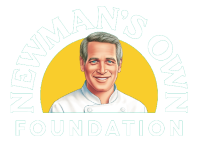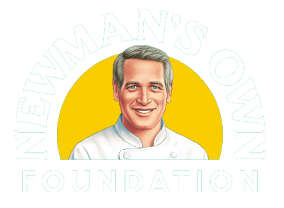Over $2.2M Awarded for Indigenous Food Justice
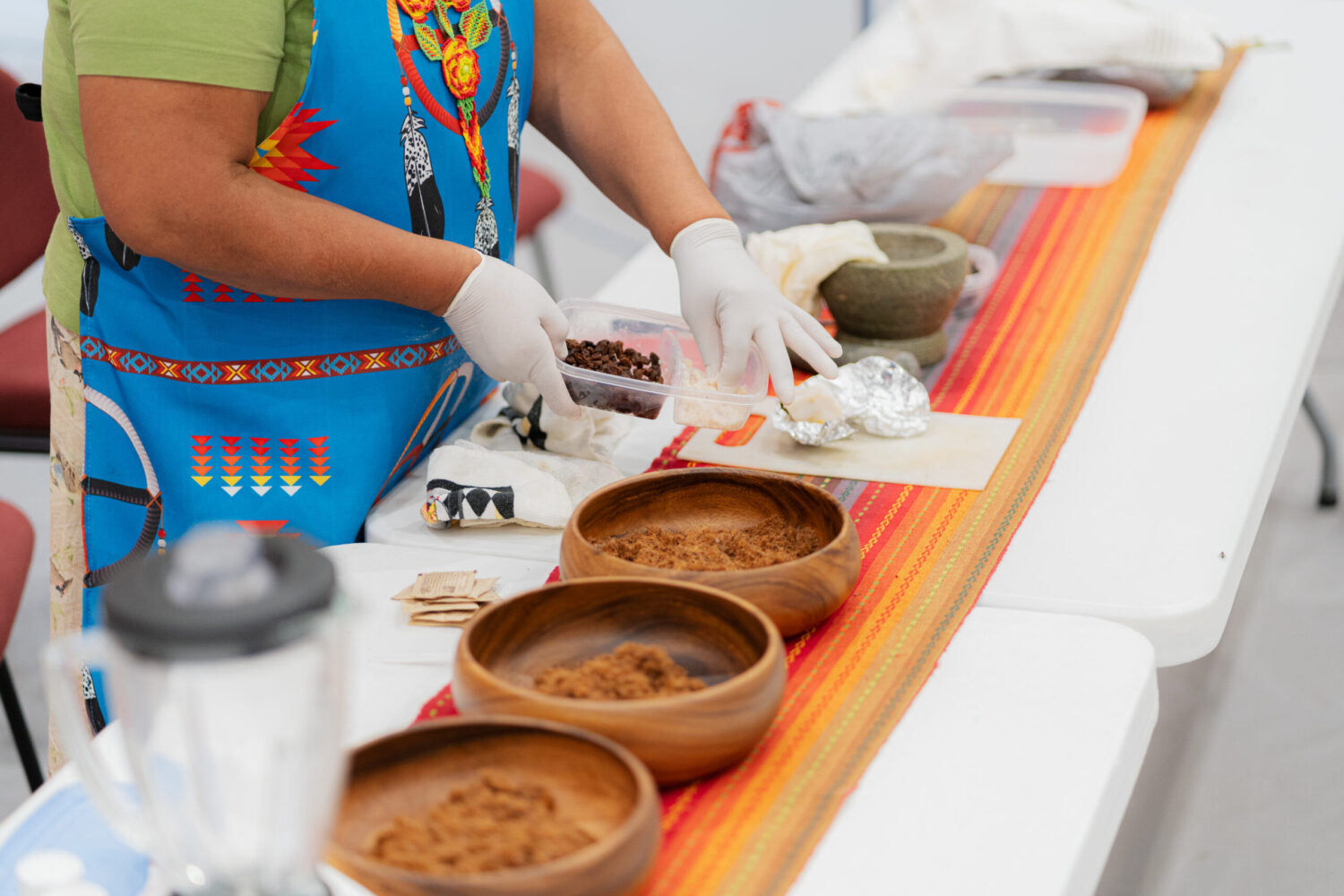
November marks Native American Heritage Month, a time to honor and celebrate the traditions, languages, and stories of Native American, Alaska Native, and Native Hawaiian communities. Newman’s Own Foundation is thrilled to celebrate our 2024 Indigenous Food Justice Grantee Partners!
Over the course of 2024, Newman’s Own Foundation proudly invested over $2.2M in Indigenous Food Justice Grantee Partners across the United States and its territories—a 37% increase compared to 2023. That includes our 6 Food Justice for Kids Prize recipients and 23 continuing Grantee Partners who are advancing Indigenous food justice for children by promoting rematriation of traditional, nutritious, and affordable foods—from reintegrating Buffalo on Tribal lands, to education on healthy growing practices and traditional cooking classes and empowering youth in food systems.
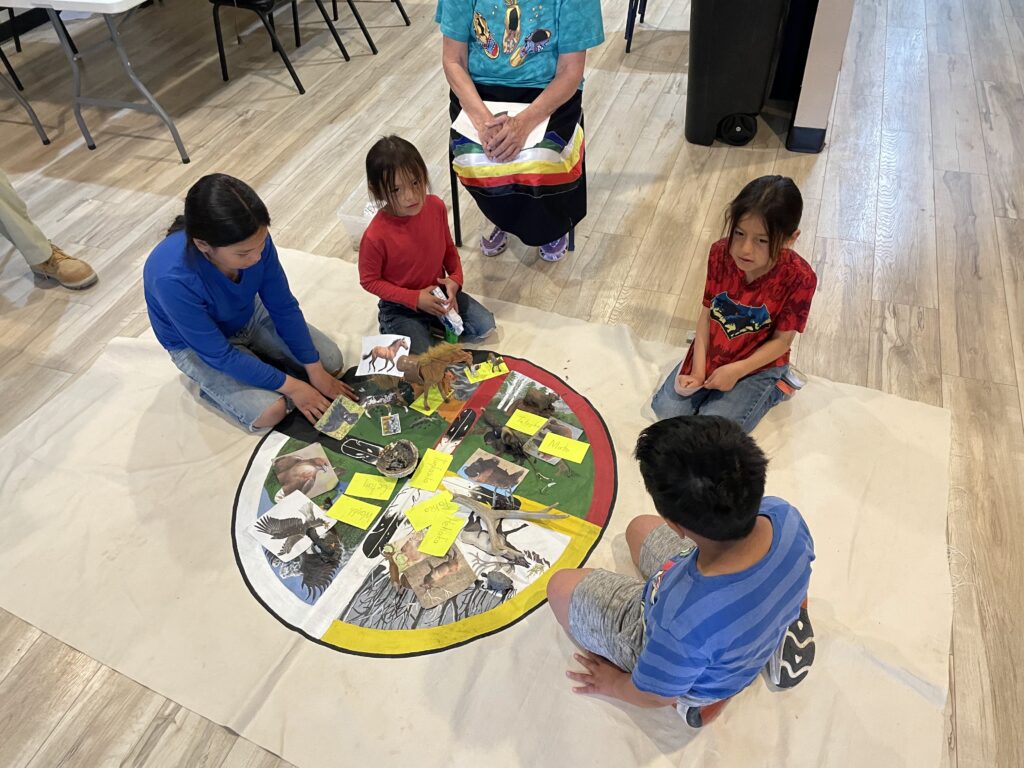
Why Indigenous Food Justice?
Indigenous people have a long history of growing nourishing, sustainable foods. The seizing of Indigenous lands in the United States over the course of several centuries forcefully disrupted the communities’ knowledge and cultivation of culturally specific foods and food systems. Adding to this injury, many Indigenous children now live in remote regions disconnected to ancestral homelands with limited access to fresh foods. A Native American Agriculture Fund Food Access Survey of over 500 participants found that at least 48 percent of Native American respondents reported living more than 10 miles from the nearest grocery store. And, the same survey during the COVID-19 pandemic found that 50% of Native Americans experienced food insecurity. These conditions have contributed to increased risks for a variety of diet-related chronic diseases, including obesity and Type 2 diabetes, for Indigenous youth.
Indigenous people have long been working to reclaim their traditional food practices and systems to enable Indigenous children to learn about, grow, gather, and cook Indigenous foods. Such efforts are key for increased physical, mental, and spiritual well-being, and for allowing Indigenous children to thrive and reach their full potential.
We invite other foundations to support this important work as well—unfortunately, a study from Native Americans in Philanthropy (NAP) and Candid found that only 0.4% of large U.S. foundation funding was granted out to Native American communities and causes from 2002 to 2016.
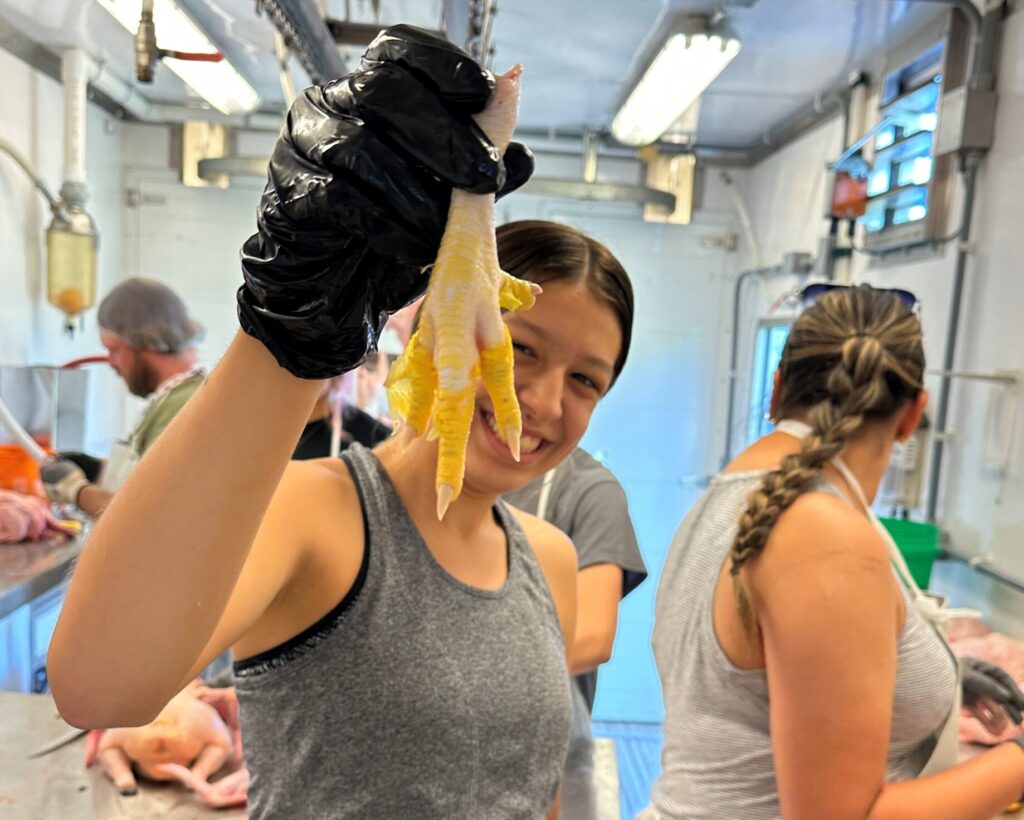
Grantee Partner Spotlight: Makoce Agriculture Development
A Grantee Partner since 2021, Makoce Agriculture Development’s mission is to develop Indigenous Agriculture & Food Systems designed to regenerate equitable healthy communities, economies, and environment. Located on the Pine Ridge Indian Reservation in South Dakota, Makoce’s contributions aim to achieve self-determination using long-term systems change approaches to ensure that youth and families in their community have access to healthy, affordable foods, healthier ways of living, and economic opportunities. Food Hub Manager Kelly Hunter reflected, “Our work at Makoce has opened my eyes to the fact that we’re not in a food desert at all. We have buffalo, deer, and now pasture-raised chicken, and that’s just a start. By changing the way we think about food, and utilizing what our ancestors taught us, we can nourish our community from within.”
2024 Indigenous Food Justice Grantee Partners
Check out this group of high-impact Tribes and organizations that are continuing Grantee Partners of Newman’s Own Foundation.
- California Indian Culture and Sovereignty Center (CICSC), hosted by California State University San Marcos Foundation, California
- Cheyenne River Youth Project (Lakota) Cheyenne River Lakota Nation, South Dakota
- Chickahominy Indian Tribe Of Virginia (Chickahominy) Virginia
- Cowlitz Indian Tribe (Cowlitz) Washington
- Dream Of Wild Health, Minnesota
- First Nations Development Institute, Colorado
- Hoonah Indian Association (Huna Tlingit) Alaska
- Kake Tribal Heritage Foundation (Tlingit) Alaska
- Ma Ka Hana Ka Ike Building Program, Hana, Hawai’i
- Makoce Agriculture Development (Oglála Lakȟóta Oyáte) Pine Ridge Reservation, South Dakota
- Nalwoodi Denzhone: Strength And Beauty Community (San Carlos Apache) San Carlos Apache Reservation, Arizona
- North American Traditional Indigenous Food Systems (NATIFS) Minnesota
- Oceanic Ascent Education Inc. (Guahan Sustainable Culture), Guam
- STAR School (aka Painted Desert Demonstration Projects Inc) (Navaho) Arizona
- Mino Bimaadiziiwin Tribal Farm, Red Cliff Band Of Lake Superior Chippewa (Red Cliff Band Of Lake Superior Chippewa) Red Cliff Reservation, Wisconsin
- Siċaŋġu Co (Siċaŋġu Lak̇ota nation) South Dakota
- Texas Tribal Buffalo Project, (Lipan Apache descendants) Texas
- University Of Minnesota Foundation, Native American Nutrition Gathering, Minnesota
- University Of Arkansas Foundation, Indigenous Food and Agriculture Initiative’s Native Youth in Food and Agriculture Leadership Summit, Arkansas
- Wabanaki Health And Wellness (Wabanaki) Maine
- Wind River Tribal Buffalo Initiative (aka National Wildlife Federation), (Eastern Shoshone and Northern Arapaho) Wind River Reservation, Wyoming
- WGBH Educational Foundation “Molly of Denali”
- Zuni Youth Enrichment Project (Zuni Pueblo) New Mexico
This is in addition to 6 new grantee partners we selected as part of the Food Justice for Kids Prize.
Our Process
Working together with existing Grantee Partners, Newman’s Own Foundation first held a series of listening sessions to inform and design the application process. Next, Foundation staff, our independent Advisory Council, and external reviewers with expertise in the issue area reviewed applications using five key criteria:
Evidence of Impact: To what extent did the organization make progress in achieving its desired outcomes during the prior year?
Alignment: To what extent does the organization align with the priority program area of Indigenous Food Justice and our broader mission?
Community Power: To what extent is the organization led by, collaborating with, and building power within the communities it seeks to serve?
Potential for Growth: Does the organization have the potential to grow and deepen their impact?
Ease of Implementation: Does the organization have a realistic plan with clearly defined objectives, adequate resources, the right stakeholder engagement, and a clear path to progress?
Learn More
Meet our Indigenous Food Justice Grantee Partners and read more about their work!
